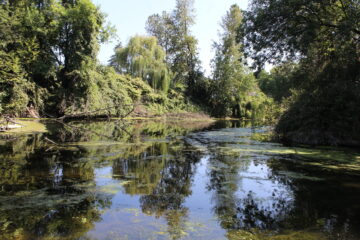Stormwater runoff from industrial sites is a major contributor to water pollution in the Pacific Northwest. When precipitation comes into contact with industrial pollutants, these pollutants—if not properly managed—can be carried through stormwater runoff into the region’s waters. NEDC has been working for decades to reduce pollutant loads from these sites. A central part of this work has been enforcing legal requirements through Clean Water Act citizen suits against industrial facilities that fail to properly manage stormwater runoff from their properties.
Over the past two decades these enforcement actions have led to significant improvements in water quality across Oregon and Washington. In a typical case, NEDC seeks an order requiring the facility to install improved treatment at the site that will significantly reduce pollution in stormwater runoff. NEDC also regularly obtains a commitment from facilities to increase runoff monitoring and reporting to ensure that new treatments are effective. And finally, NEDC seeks penalties for past pollution or, alternatively, a payment to an organization in the watershed to fund important work to improve water quality. Our work over the years has resulted in over $2,000,000 in payments to local nonprofits to protect and restore local rivers and streams.
These efforts—often fueled by student research—have been an important focus in recent months. This year alone, NEDC has resolved Clean Water Act enforcement actions against three industrial facilities in the Portland region: Ross Island Sand and Gravel, located on the Willamette River near downtown Portland; Kinder Morgan Bulk Terminals, a bulk materials storage and transfer site on the Willamette in Portland Harbor; and Supreme Steel, a metal fabrication facility on the Columbia Slough. At each site, NEDC has secured commitments to install new stormwater treatment designed to reduce pollutant loads below dangerous levels, new monitoring and reporting requirements, and significant payments to local organizations to continue their work protecting these waters.
“These three cases are great examples of NEDC’s ongoing work holding polluters accountable,” says NEDC staff attorney Jonah Sandford. “Through these enforcement actions, NEDC continues to win critical water quality improvements for local watersheds. This work will remain a priority as we move into 2021.”









